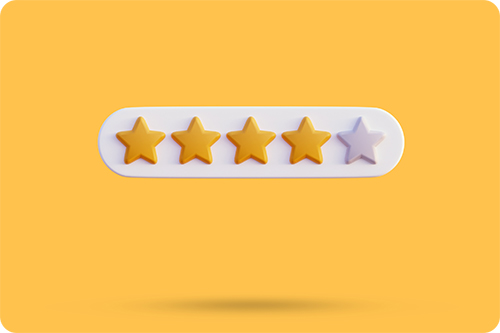
5 best human resource practices that’ll transform your workplace
Human resources management has become more complex because of the recent shift in flexible work arrangements: remote and hybrid work (a combination of in-office and remote). The good news is that several versatile HR best practices can help you adapt to the future of work.
Defining HR best practices
As the name suggests, HR best practices are a set of techniques that has been generally accepted as effective in managing the workforce. They’re designed to support strategic HR operations and obtain optimal results across the organisation.
Here are a few best practices that support the major HR activities—recruitment, employee relations, training and development, performance management, and compensation and benefits:
1. Hiring the right person for the job
Companies seeking to hire new talents shouldn’t only fill open positions. HR leaders should also practice selective hiring and pick the candidate who best fits the job, especially in today’s (mostly) digital workplace.
Getting the right employee on board helps your business in many ways—save time, reduce costs, and boost growth.
When you hire a person who exceeds the required skill set, you can focus your time and energy on other value-adding business activities. You can remain at ease knowing that tasks are done right and on time.
Not only does hiring the right person save you from time management constraints, but it also helps you reduce relevant costs. Hiring the most qualified candidate from the beginning enables them to hit the ground running, thus lowering turnover costs and training expenses.
Lastly, bringing the right person to your company allows for business growth. Candidates with exceptional skills are a great asset—they could grow their skill sets even further and take your business to new heights.
2. Cultivate a friendly work environment
Employee relations is one of the most critical human resource activities. HR teams should build a healthy employer-employee relationship to create a happy, loyal, and productive workforce.
With the flexible working arrangements on the rise, HR professionals should keep employees engaged and comfortable at work. Below are a few HR practices to develop and maintain strong employee relations:
- Stay connected through technology. Have monthly one-on-one online meetings with employees to build rapport and provide support. Aside from sharing about their jobs, encourage employees to tell more about their personal lives.
- Build transparency around the workplace. Conduct daily or weekly stand-ups to see what’s in the pipeline. Monthly virtual town halls also keep your employees updated on the business performance and the company’s future goals and initiatives.
- Honour employees on their special day virtually. Whether it’s a birthday, work anniversary, or achievement, make sure to mention it in your company newsletter or social media group.

3. Promote continuous learning in the workplace
The HR role is multifaceted; it involves all matters related to managing the employees, including employee training and development.
Providing career advancement opportunities is one of the HR activities that can foster a healthy work environment. By supporting the career needs of your employees, you can retain valued workers and increase overall employee motivation and productivity.
Thanks to online learning platforms, you can continue to support the growth of your remote employees. Help them map out what they want to learn and the goals they want to achieve. Then, provide them with the resources like Udemy Business for unlimited access to courses.
4. Fair & 360-degree employee evaluation system
It’s no secret that performance evaluations could have an immense impact on employees. To ensure each member of your workforce stays motivated, follow an important HR practice—develop a fair and transparent evaluation system.
It’s no secret that performance evaluations could have an immense impact on employees. To ensure your workforce stays motivated, follow an essential HR practice—develop a fair and transparent evaluation system.
Also, HR leaders should solicit 360-degree feedback. Here are a few tips to get this feedback system right:
- Gather feedback from all angles (i.e., peers, supervisors, direct reports, etc.).
- Encourage reviewers to provide constructive feedback (something that can help them achieve a positive outcome).
- Keep peer reviews confidential, so everyone will feel comfortable, to tell the truth.
Giving performance-linked bonuses should also be part of the evaluation system. Incentive or reward programs can make a big difference in every employee’s performance and help attract or retain top workers.

5. Review & adjust HR processes when necessary
While all the above HR practices are necessary, there’s one thing that human resource professionals should prioritize—review and evaluate processes.
Assess your current procedures and check whether they still align with your goals, including:
- retain existing talent
- improve sales performance
- speed up the hiring process
- increase employee productivity
- save costs associated with new hires
If your HR activities aren’t running smoothly and you’re not meeting your goals, plan a new set of strategies that will suit your company’s needs.
One more thing: invest in good HR software
A robust human resource management software like Unit4 Prosoft can help you implement all these HR best practices. Our HR technology covers the basic functionalities needed for end-to-end human resources management.
Whether you implement a remote or hybrid working arrangement, Prosoft HRMS is the best solution for you. Learn more about how we can assist you in managing your workplace and organisation at large here.



